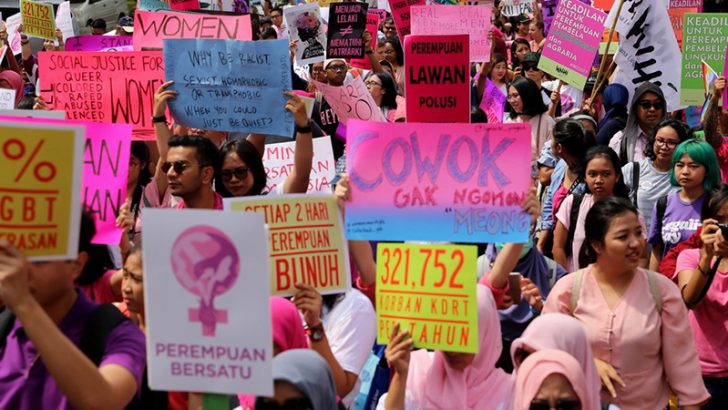The number of reported cases of violence against women in Indonesia shot up by nearly 14% last year, according to the National Commission on Violence against Women.
In its annual report issued on March 6, two days before International Women’s Day, the commission said there were 406,178 reported cases of violence against women in 2018 compared to 348,466 the previous year.
Most cases — 71%— involving sexual, physical, psychological or economic abuse were committed by family members.
Another 28% were committed by acquaintances, work colleagues or strangers, while 1% of cases were committed by the state, according to the report.
The highest number of reported cases originate in Central Java province at 2,913, followed by Jakarta at 2,318.
“The increase is because more victims have had the courage to file complaints [to the commission or other institutions],” commission chairwoman Azriana Manalu, said at the report’s launch in Jakarta.
“But if we talk about violence against women, we don’t know for sure the exact number as it doesn’t represent all incidents. The number only shows an improved awareness among victims,” she said.
According to her, many victims still do not file complaints for various reasons.
These could include lack of access to social services, or because they blame themselves as a result of psychological or physical pressure placed on them by the perpetrator or others, she said.
“The number revealed in our annual report should be the basis for us to offer help and try to improve public education in cooperation with religious and public leaders,” she said.
Ursuline Sister Irena Handayani, head of Jakarta Archdiocese’s Migrant Care Network, called for an anti-sexual violence bill drafted by the commission to be immediately approved by the national assembly to better protect women.
“If the bill is passed, perpetrators can be punished properly. I see that ‘impunity’ remains high,” she said, adding that her group has worked together with various organisations since 2017 to raise awareness about violence against women among students and Church communities.
Calls for the passing of the bill have been mounting since it was proposed in 2017.
It enshrines more specific forms of violence against women into law, such as forced marriage and abortions and gives women better access to services that will help them try and recover from what they have suffered.
The bill also stipulates punishments for perpetrators, such as imprisonment and rehabilitation.



